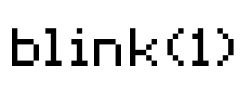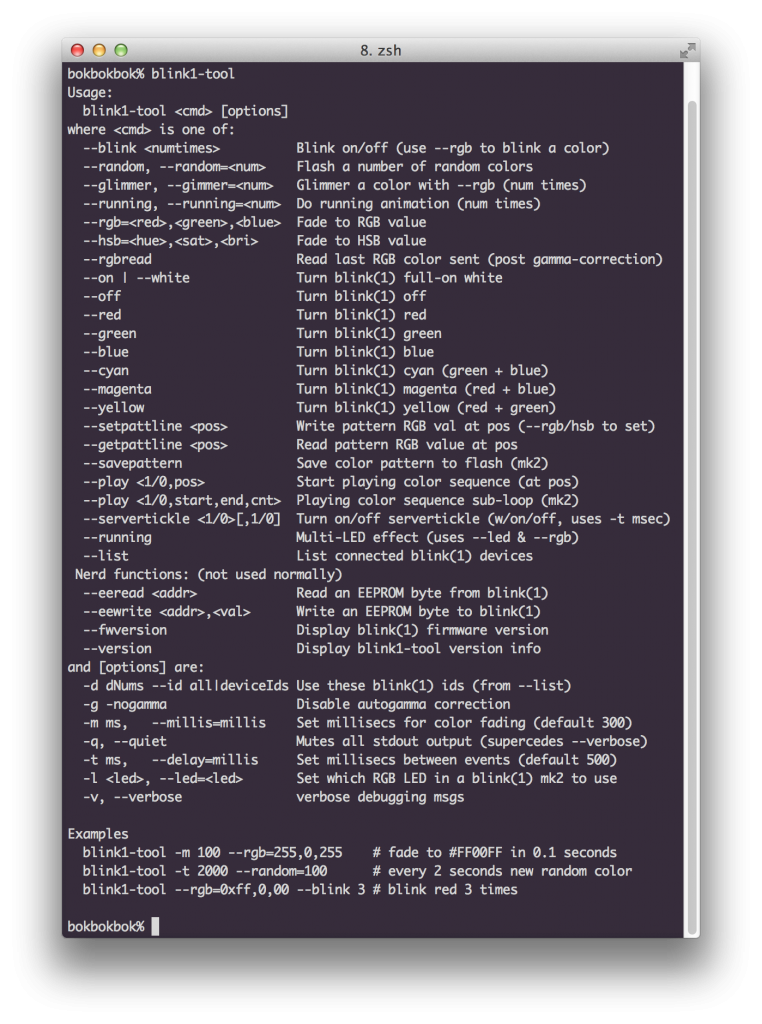The “blink1-tool” command line application is available for just about any OS that supports libusb, HID-API or hidraw. These include:
- Windows XP / Vista / 7 / 8
- Mac OS X
- Linux (Ubuntu, Debian, etc.)
- FreeBSD
- Raspberry Pi
- Beaglebone / BeagleBoard
- DD-WRT routers
- Arduino Yun
Tips for blink1-tool
Here’s some tips on what blink1-tool is and how to use it.
It covers things like:
- Getting started with blink1-tool
- Setting custom colors and blinking from the command-line
- Controlling multiple blink(1) devices
- Using blink1-tool in scripts
Check it out here: blink1-tool-tips.
Using blink1-tool with Blink1Control2
Only one program can access the blink(1) device at a time. If running the Blink1Control2 app, you can either use the Blink1Control HTTP REST API or use “blink1control-tool”, a command-line program that has the same command-line switches as “blink1-tool” but does so
You can find “blink1control-tool” in the blink1-tool releases page. (You may need to scroll down, it doesn’t need updating as often so it may be on an older releases section)
Download
To get blink1-tool for your OS, visit:
and search for a version of blink1-tool for your OS.
If you are on certain versions of Linux (including embedded Linuxes like Raspberry Pi), it’s likely our compiled version of blink1-tool will not work on your system. In that case, just checkout the ‘blink1’ github and compile it yourself. Something like the below will work 99% of the time:
# git clone https://github.com/todbot/blink1-tool.git # cd blink1-tool # make
If you are on a Linux-like OS, you will need to either run as root (<code> sudo blink1-tool</code>) or install udev rules as described in 51-blink1.rules.
When you run blink1-tool without any arguments, it will print a help page like below.

